Permanent Culture Now is proud to host a guest post from Warren James Jr of Forest of Dean Anarchists
Introduction
Perhaps the biggest challenge anarchists face is combating the masses of disinformation out there about anarchism, to educate the 99% and explain ourselves, and what anarchism means rather than what government and other propaganda tells us that it means. That’s part of the reason we set up Forest of Dean Anarchists.
Stuart Christie, since 1962 has been an active anarchist, through writing, publishing and action. The Glaswegian author of Granny Made Me An Anarchist, General Franco Made Me A Terrorist and Edward Heath Made Me Angry (his entertaining and inspiring three-part autobiography), and The Christie File: Enemy Of The State, first achieved notoriety in 1964 when at the age of 18 he hitch-hiked to Madrid to assassinate Franco, and was caught and imprisoned. He was freed three years later thanks to an international campaign led by Jean-Paul Sartre and Bertrand Russell. In the 1970s, he helped to reform the Anarchist Black Cross association (to support political prisoners), edited the Black Flag magazine and was acquitted of being part of the Angry Brigade. He remains active in the south of England, where he runs a book publishers http://www.christiebooks.com and is looking for donations to get an anarchist/libertarian film archive up and running again (see appeal on his site).
One of FOD Anarchists sent him some questions, and when he got a spare few minutes from working on his latest Do you feel that earlier anarchist methods, such as ‘propaganda by the deed’ can be effective today?
 The tactic of propaganda by the deed is an essential and unchanging element in the struggle for justice and fairness. What may differ from time to time, generation to generation, is the methodology of that direct action. When called on, each new generation and/or individual finds its own way to resist tyranny or advance the struggle. Methods that, for one reason or another, were morally or technically feasible or 20 or even 10 years ago are often no longer possible today. To paraphrase Karl Popper: because our knowledge and understanding of the world is constantly changing and evolving, especially so in our digital age, we cannot, therefore, know today what we can only know tomorrow
The tactic of propaganda by the deed is an essential and unchanging element in the struggle for justice and fairness. What may differ from time to time, generation to generation, is the methodology of that direct action. When called on, each new generation and/or individual finds its own way to resist tyranny or advance the struggle. Methods that, for one reason or another, were morally or technically feasible or 20 or even 10 years ago are often no longer possible today. To paraphrase Karl Popper: because our knowledge and understanding of the world is constantly changing and evolving, especially so in our digital age, we cannot, therefore, know today what we can only know tomorrow
I have seen little evidence that the protagonists of recent movements such as the Indignados of southern Europe, the Arab Spring, and Occupy describe themselves as socialists or anarchists, yet it seems to me that their calls for direct democracy, their holding of general assemblies and call for the end of capitalism are similar, or the same, as anarcho-syndicalism. Do you agree, and if so, why do you think the words ‘anarchism’ or ‘socialism’ are rarely, if ever, mentioned, and do you think they should be?
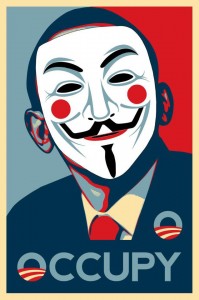 My understanding of these movements is that anarchists and libertarians were — and are — very active in these movements, indeed central to them, especially in the case of the indignados in Spain. What they didn’t do, however, quite sensibly and correctly as anarchists, is lay ideological claim to these popular movements or attempt to use them as fertile organisational ‘recruiting grounds’, as inevitably occurs with the Marxist-Leninist-Trotskyist and the Islamist/Jihadist groupings. Anarchists, anarcho-syndicalists and libertarian socialists are certainly active today in Egypt, Libya and other Maghreb countries, and I’ve no doubt there are also anarchists active in the Arabian Peninsula as well. If the terms ‘anarchism’ and ‘socialism’ are rarely heard that’s possibly down to the editorial policies of the mainstream broadcast and print media who have a different agenda and prefer to focus on the Jihadist/Muslim Brotherhood threat.
My understanding of these movements is that anarchists and libertarians were — and are — very active in these movements, indeed central to them, especially in the case of the indignados in Spain. What they didn’t do, however, quite sensibly and correctly as anarchists, is lay ideological claim to these popular movements or attempt to use them as fertile organisational ‘recruiting grounds’, as inevitably occurs with the Marxist-Leninist-Trotskyist and the Islamist/Jihadist groupings. Anarchists, anarcho-syndicalists and libertarian socialists are certainly active today in Egypt, Libya and other Maghreb countries, and I’ve no doubt there are also anarchists active in the Arabian Peninsula as well. If the terms ‘anarchism’ and ‘socialism’ are rarely heard that’s possibly down to the editorial policies of the mainstream broadcast and print media who have a different agenda and prefer to focus on the Jihadist/Muslim Brotherhood threat.
It seems that anarchism is regarded by many as a dirty word, partly due to successful anti-anarchist propaganda, partly due to the interpretation given to it by some anarchists themselves (such as ‘the black bloc’). Would you agree with me, and how might we ‘sell’ anarchism to the masses?
The words ‘Anarchism’ and ‘anarchists’ have always been demonised by the mainstream media; the time to worry is when the capitalist press and state spin doctors stop using them as ‘bogeymen terms. As for ‘selling anarchism to the masses’ the only way to do that is through education (spreading the Idea), inspiration — and example.
Would you consider yourself a socialist as well as an anarchist?
Yes
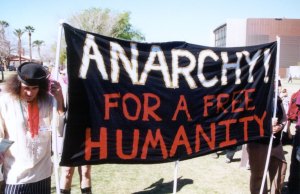 How hopeful, or hopeless, do you feel the anarchist struggle could be in the face of this current government?
How hopeful, or hopeless, do you feel the anarchist struggle could be in the face of this current government?
It has never been a question of being hopeful or hopeless in the face of this or any future government/society; the struggle —with the human condition, not just the state — is forever with relentless struggle. All you can — or should — hope for along the way are a few little victories and, maybe, the occasional big one. ‘History’, Seamus Heaney says ‘Don’t hope on this side of the grave. But then, once in a lifetime, the longed-for tidal wave of justice can rise up, and hope and history rhyme. So hope for a great sea-change on the far side of revenge. Believe that a further shore is reachable from here. Believe in miracles and cures and healing wells.’
If there were a general election tomorrow, would you vote, and if so, who would you vote for (if they were standing)?
No, I wouldn’t vote for a party or for an individual no matter how honourable, but I would certainly consider a protest vote against a party — or for something achievable. For example, in the Spanish elections of 1936 the anarcho-syndicalist CNT tacitly withdrew its overt opposition to participation in the parliamentary process (ie, voting) in order to force the release of 30,000 political prisoners imprisoned by the Republic over the previous three years
Do you think we could achieve a wholesale anarchist society? Could it happen transitionally or would a rapid revolution be necessary?
I’ve really no idea; what appeared to work rapidly and violently in particular places and times (e.g., Russia, 1917, and Spain, 1936) clearly, for a whole variety of reasons, didn’t endure.Similar events may happen again, who knows, all we can do is work, hope and carry on. Even so, as, when,and if an ‘anarchist’ society comes into being we’ll still have to face the perennial problems of co-existence human beings have faced since time immemorial. One saving grace we should have — as anarchists — is that we’d hope to be more realistic and conscious of our human failings, shortcomings and limitations, particularly with regard to the corrupting influence of the exercise of power. However, I am an optimist and I share the view of American psychologist William James: ‘The ceaseless whisper of the more permanent ideals, the steady tug of truth and justice, give them but time, MUST warp the world in their direction.’
Do you think that a. the NHS, b. Social security, c. police, d. military, could continue to function, or would be necessary, in an anarchist society?
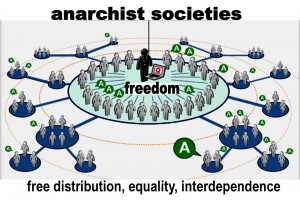 An anarchist society is and always will be an aspiration, an ideal — a ‘star’ to follow — one that provides us with an ethical code, a moral barometer and a libertarian political template for our everyday lives. If and when a social revolutionary situation recurs again (in this country or anywhere) the role of the anarchist will be to do what they can to ensure that the social institutions required to ensure that any human society (including health and welfare,and security/defence services), function justly, fairly and as conflict-free as is humanly possible, are — and remain — fundamentally democratic, libertarian and answerable to the community. It’s not about achieving Nirvana or a Utopia, only religious zealots and ideological fundamentalists believe in the ‘rapture’ that creates the Kingdom of Heaven on earth, or the ‘last fight’ mentioned in ‘The Internationale’. Anarchists appreciate only too well how ‘imperfect’ human beings are and, doubtless always will be, which is why they reject institutionalised power structures as the bedrock for the creation of oligarchies (well-meaning or otherwise) and the corrupting of the body politic.
An anarchist society is and always will be an aspiration, an ideal — a ‘star’ to follow — one that provides us with an ethical code, a moral barometer and a libertarian political template for our everyday lives. If and when a social revolutionary situation recurs again (in this country or anywhere) the role of the anarchist will be to do what they can to ensure that the social institutions required to ensure that any human society (including health and welfare,and security/defence services), function justly, fairly and as conflict-free as is humanly possible, are — and remain — fundamentally democratic, libertarian and answerable to the community. It’s not about achieving Nirvana or a Utopia, only religious zealots and ideological fundamentalists believe in the ‘rapture’ that creates the Kingdom of Heaven on earth, or the ‘last fight’ mentioned in ‘The Internationale’. Anarchists appreciate only too well how ‘imperfect’ human beings are and, doubtless always will be, which is why they reject institutionalised power structures as the bedrock for the creation of oligarchies (well-meaning or otherwise) and the corrupting of the body politic.
What examples can you think of as anarchy in action today?
Can’t think of any offhand, specifically, but I’m sure your readers can come up with lots of examples of voluntary self-help and direct organisations and bodies that would fit into the category of ‘anarchy in action’.
Can laissez-faire capitalists/ the US Libertarian Party be considered as anarchists?
Not in the slightest. These people are minimal statists, the minimal part being the defence and advancement of self-interest and property rights — and not even ‘enlightened’ self-interest.
Have your ideas changed much over the decades, and if so, how?
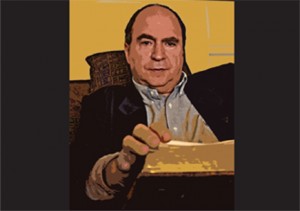 Yes, my thoughts and views on lots of things have changed over the years, which is inevitable as you acquire more knowledge through different experiences, and meeta wide variety of people with different views on life to your own — and of course reading, TV, cinema, the internet, etc.. But my anarchist view of the world remains fundamentally unchanged, ie – see the following:
Yes, my thoughts and views on lots of things have changed over the years, which is inevitable as you acquire more knowledge through different experiences, and meeta wide variety of people with different views on life to your own — and of course reading, TV, cinema, the internet, etc.. But my anarchist view of the world remains fundamentally unchanged, ie – see the following:
What is anarchism?
Anarchism is the movement for social justice through freedom. It is concrete, democratic and egalitarian. It has existed and developed since the seventeenth century, with a philosophy and a defined outlook that have evolved and grown with time and circumstance. Anarchism began as what it remains today: a direct challenge by the underprivileged to their oppression and exploitation. It opposes both the insidious growth of state power and the pernicious ethos of possessive individualism, which, together or separately, ultimately serve only the interests of the few at the expense of the rest.
Anarchism promotes mutual aid, harmony and human solidarity, to achieve a free, classless society – a cooperative commonwealth. Anarchism is both a theory and practice of life. Philosophically, it aims for perfect accord between the individual, society and nature. In an anarchist society, mutually respectful sovereign individuals would be organised in non-coercive relationships within naturally defined communities in which the means of production and distribution are held in common.
Anarchists, are not simply dreamers obsessed with abstract principles. We know that events are ruled by chance, and that people’s actions depend much on long-held habits and on psychological and emotional factors that are often anti-social and usually unpredictable. We are well aware that a perfect society cannot be won tomorrow. Indeed, the struggle could last forever! However, it is the vision that provides the spur to struggle against things as they are, and for things that might be.
Whatever the immediate prospects of achieving a free society, and however remote the ideal, if we value our common humanity then we must never cease to strive to realise our vision. If we settle for anything less, then we are little more than beasts of burden at the service of the privileged few, without much to gain from life other than a lighter load, better feed and a cosier berth.
Ultimately, only struggle determines outcome, and progress towards a more meaningful community must begin with the will to resist every form of injustice.
In general terms, this means challenging all exploitation and defying the legitimacy of all coercive authority. If anarchists have one article of unshakeable faith then it is that, once the habit of deferring to politicians or ideologues is lost, and that of resistance to domination and exploitation acquired, then ordinary people have a capacity to organise every aspect of their lives in their own interests, anywhere and at any time, both freely and fairly.
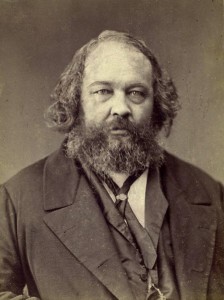 Anarchism encompasses such a broad view of the world that it cannot easily be distilled into a formal definition. Michael Bakunin, the man whose writings and example over a century ago did most to transform anarchism from an abstract critique of political power into a theory of practical social action, defined its fundamental tenet thus: In a word, we reject all privileged, licensed, official, and legal legislation and authority, even though it arise from universal suffrage, convinced that it could only turn to the benefit of a dominant and exploiting minority, and against the interests of the vast enslaved majority.
Anarchism encompasses such a broad view of the world that it cannot easily be distilled into a formal definition. Michael Bakunin, the man whose writings and example over a century ago did most to transform anarchism from an abstract critique of political power into a theory of practical social action, defined its fundamental tenet thus: In a word, we reject all privileged, licensed, official, and legal legislation and authority, even though it arise from universal suffrage, convinced that it could only turn to the benefit of a dominant and exploiting minority, and against the interests of the vast enslaved majority.
Anarchists do not stand aside from popular struggle, nor do they attempt to dominate it. They seek to contribute to it practically whatever they can, and also to assist within it the highest possible levels both of individual self-development and of group solidarity. It is possible to recognise anarchist ideas concerning voluntary relationships, egalitarian participation in decision-making processes, mutual aid and a related critique of all forms of domination in philosophical, social and revolutionary movements in all times and places.
Elsewhere, the less formal practices and struggles of the more indomitable among the propertyless and disadvantaged victims of the authority system have found articulation in the writings of those who on brief acquaintance would appear to be mere millenarian dreamers. Far from being abstract speculations conjured out of thin air, such works have, like all social theories, been derived from sensitive observation. They reflect the fundamental and uncontainable conviction nourished by a conscious minority throughout history that social power held over people is a usurpation of natural rights: power originates in the people, and they alone have, together, the right to wield it.
Do you think we in Britain are still threatened by fascism?
Fascism of one sort or another — as with any other reactionary populist ideology and fundamentalist belief system — is always a potential threat to society, especially when people’s fears and emotions can be manipulated and used in the furtherance of some elitist political or religious agenda. Who’d have thought twenty years ago that militant jihadist Islam or fundamentalist Protestantism/Catholicism would still be a serious and ongoing problem in the 21st century!
Should we try and build a movement and organise? If so, how might we do it and what form could it take?
Movements that are thrown up as a response to a particular threat or situation, yes, but you can’t just ‘set up’ a body with revolutionary aspirations in the hope of it developing it into a revolutionary movement’ without it — inevitably—degenerating into a self-perpetuating, self-serving vanguardist monster, e.g., the Communist Party, SWP, WRP, etc. A very useful text to read in that respect is Robert Michels’ ‘Political Parties’, especially the chapters outlining what he called ‘the Iron Law of Oligarchy’. The only way to build, organise, educate and proselytise anarchist libertarian ideas and solutions is through bodies with shared economic/class interests such as the trade unions, trades councils or other community-based groups.
As a prominent anarchist theorist, Stuart Christie’s words of wisdom should indeed be relevant to PCN.
Find out about the Forest Of Dean Anarchists here.

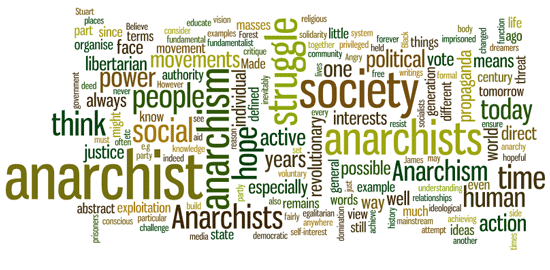
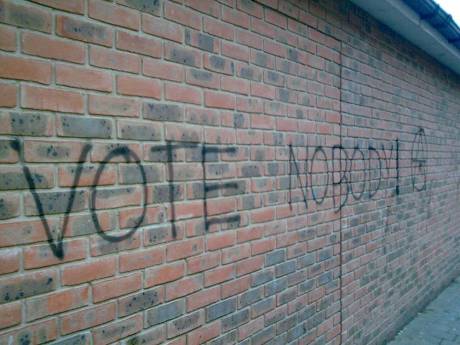

“If anarchists have one article of unshakeable faith then it is that, once the habit of deferring to politicians or ideologues is lost, and that of resistance to domination and exploitation acquired, then ordinary people have a capacity to organise every aspect of their lives in their own interests, anywhere and at any time, both freely and fairly.”
I honestly and deeply believe this vision can only be achieved through using the pattern language technology of Christopher Alexander: http://permaculturenews.org/2012/02/07/peer-to-peer-themes-and-urban-priorities-for-the-self-organizing-society/
I want to thanks for this article, as I’ve never really thought about that anarchy can be achieved using the technologies and discoveries of Alexander, as true anarchy not is chaos but self organization.
As I said in my other comment, the best way to achieve this, as I see it, is by using Alexander’s pattern technology. But what we must not forget is that this is not alone to achieve a re-unification with nature. Personally I have by now read the first and the last book of Alexander,s The Nature of Order, and these books are about form languages. As I interpret Alexander every true form language has its origins in The Fifteen Fundamental Properties of Wholeness: http://www.tkwa.com/fifteen-properties/
These properties are like an alphabet that can form a myriad of different form languages, as they did throughout human history. Alexander has also done much work to document that these properties work through evolution and through every geological formation of the Earth, all the time from Big Bang.
Strangely, the last century humanity left The Fifteen Fundamental Properties of Wholeness, probably this has never happened before in the history of the universe. This is why resilience cannot be achieved under the influence of modernism, in any shape: http://blog.p2pfoundation.net/resilience-after-modernism/2013/03/27
This image shows very clearly that a permanent culture can only be achieved when a true pattern language links to a true form language: http://zeta.math.utsa.edu/~yxk833/LECTURES/TalkICAA2011.htm
Only the unity between these two can again make our world whole, because all biological systems are linked the same way.
A third aspect that should be mentioned is the discovery of the Handicap Principle, discovered by Amoz Zahavi. This is in my view a metapattern, it looms above all other patterns like Mount Everest looms above all other mountains. This force can be used for good or evil, and after I learned about the Handicap Principle I can see how the good forces it can release is found in several Alexandrine patterns. But with the knowledge of this principle I’ve no doubt we can uncover new and very useful patterns growing the good forces of the Handicap Principle.
The Norwegian human behavioral ecologist Terje Bongard has written a whole book about how we can utilize the Handicap principle in organizing society, unfortunately it’s not translated into English yet. I’ve written an article about these possibilities in Norwegian language: http://www.kulturverk.com/2013/02/23/med-hovudet-i-riftdalen-fra-olje-veks-ingenting/
So my “recipe” is linking the Handicap Principle with the Pattern Language, which is linked with the Form Language, as a whole.
Please note that all three have their origins in science. This way we can make a very solid foundation for a new Permanent Culture, and we might call it anarchy.
I want to give you two quotes from Alexander’s latest book, The Battle for the Life and Beauty of the Earth. As these quotas shows, the 15 properties are the basic transformations shaping the Earth. Ever since the Big Bang and throughout human history these properties have transformed every element of the universe into living structure, until industrial revolution and most essentially the rise of Modernism in the last century.
There might been other planets in the universe where this has happened too, but probably it happened for the first time at Earth in the last century, during the time span of soon 14 billion years that have now passed since the beginning of the universe.
As Alexander has shown in the “Nature of Order”-series, wholeness can only be achieved through these 15 transformations. Any system not achieving wholeness is doomed to collapse. This is why they are essential to a new permanent culture, and MUST again be brought to life: http://permaculturenews.org/2012/08/10/permaculture-nature-civilization/
“Morphogenesis then occurs by the repeated application of the fifteen transformations on the centers in a configuration. We call them transformations from now on, not properties, because each one is expressed as an instruction — an action of transformation — which can be applied to a configuration, then giving a concrete geometric result, thus transforming the overall wholeness. Each transformation can be applied to any centers in a given configuration, and thus transforming the configuration in a huge number of different ways. The fundamental and important generic idea at the core of what follows is that taking these actions continuously extends the wholeness of a structure.” – Christopher Alexander, The Battle for the Life and Beauty of the Earth, page 430-431
“Here are the fifteen properties, now expressed as fifteen transformations that generate life. These provide the active juice with which a living system provides the range of possibilities with which we may work. EVERY LIVING SYSTEM USES THESE TRANSFORMATIONS. They are the active elements which go to work.” – Christopher Alexander, The Battle for the Life and Beauty of the Earth, page 431
If anarchy, with that I mean self-organization, shall work, this system must generate wholeness, if not it will collapse, just like any other mechanical system. The fifteen transformations on the other hand, unfolds themselves through morphogenesis, like any living system. Without them a new permanent culture cannot grow!
“Using the comprehensive paradigm of conceptual tools and stepwise actions, and taking the great care that has been described, it is within our power to recover the deeper aspects of human nature and work our way toward a compassionate and ethical civilization. It is possible to recover ourselves, our world, and a future for our children and their children — one that is rooted in profound and lasting values.
Knowing that our devastated civilization cannot be repaired in a hurry, we may assume it can be rebuilt and reaffirmed only if we go very deep into the foundations of this new potential civilization. That requires, as underpinning, a renewed physical world, together with a new way of building and looking after land.
We can begin now. We can lay out a new way of thinking which is, perhaps, deep enough to give us the stepping stones we need to replace the disastrous errors we made during the last century.
If we have sufficient courage, we can make a difference in our lifetimes. In a couple of hundred years we may have recovered our selves, our wits, our common sense, together with a newly inspired framework, giving us back real architecture as the locus of our new life and recovery.” – Christopher Alexander, The Battle for the Life and Beauty of the Earth, page 475
There is a reason rational people never mention anarchy and socialism in the same sentence. They simply don’t mix! Anarcho-socialism is a contradiction in terms.
This Christie character is simply clueless. Firstly about anarchy.
Anarchy simply means that nobody rules. Nothing more. Yet this dope came up with the list of rules what anarchists “do” or are “supposed to be”. List of rules for anarchists? Bugger off, pal! Who are you to tell the rest of us how to live?
Then he is clueless about socialism. Socialism can never work in an anarchy because there would be nobody to enforce the “redistribution” of goods. Socialist “redistribution” is really just a euphemism for robbery of productive people and it cannot be done without central force and the monopoly on said force, which is – the state. Socialism cannot work OUTSIDE the state, plain and simple. The minute you start enforcing something it’s no longer an anarchy.
Proper redistribution of goods is done within laissez-faire trade, another thing Mr. Christie is clueless about. He thinks “laissez-faire capitalists” are “minimal statists” because of “laissez-faire” leanings of a certain political party in the USA. All political parties are statist in nature because they operate within the state system. Some of them may show an inclination towards “laisses-faire capitalism”, but none of them will ever be true “laisses-faire capitalism”. Neither them nor Mr. Christie seem to know the real meaning of the term.
Trade is the only fair means of redistribution and it cannot be done fairly and properly WITHIN the state. Trade is the basic tool of civilization. It came before the state and it doesn’t need the state. The state interferes in the trade in what can only be described as detrimental ways. The state disrespects private property. The state imposes borders and limits and demands tributes. The state dictates prices, therefore depriving the market of their informational value. The state counterfeits currency, thus devaluing the goods in the market. Worst of all – it gives, by means of welfare and handouts, purchase power to those that shouldn’t have it, thus creating a distortion in the natural supply-demand system. The state initiates wars…
All the so-called crises we’re witnessing today are created directly or indirectly by state meddling, or by very existence of states. All the while people blame capitalism. Please, don’t! We’ve never seen the true capitalism at work.
And please don’t pin on pseudo-humanistic ideas, such as altruism and solidarity, to advocate anarchy. They are ill-conceived, overrated and pretty-much against the very meaning of anarchy. Anarchy doesn’t need them. Anarchy is simply freedom from other people. Freedom to choose what you want to do with your life and your property. You can give, you can keep, but the point is that no one forces you. That is both its most pragmatical definition and the best advert for it.